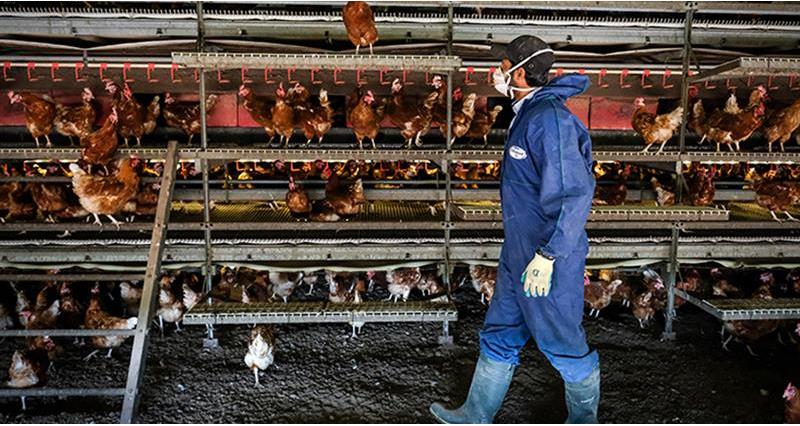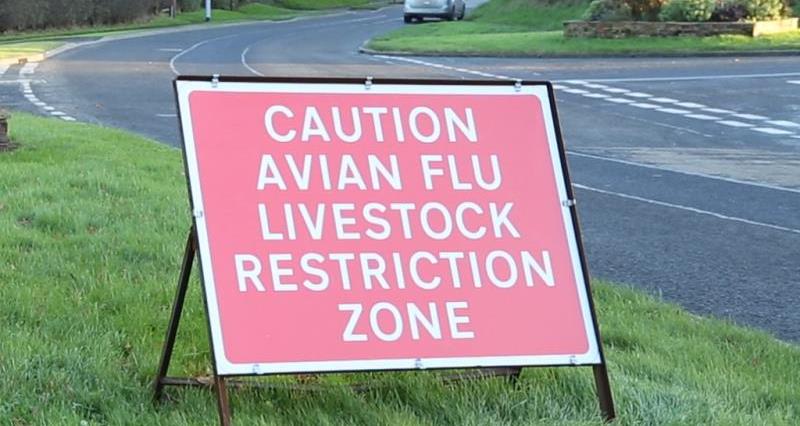The government has announced the lifting of AIPZ (avian influenza prevention zone) housing measures, from 00:01 on 15 May 2025. This follows the latest AI risk assessment showing the risk of HPAI H5 in wild birds and poultry has reduced.
The lifting of housing measures applies to all areas unless keepers are in a Protection Zone or Captive Bird Monitoring (Controlled) Zone, where there has been a recent outbreak.
A 7 day transition period, from 00:01 on 15 May to 00:01 on 22 May, will apply to help minimise welfare issues for birds that have been previously housed. During this time, and where necessary, birds should be released gradually.
Stringent biosecurity practices still apply across England, Scotland and Wales and the government is encouraging keepers who intend to give their birds outside access, to prepare for their safe release by cleansing and disinfection hard surfaces, fencing off ponds or standing water and reintroduction of wild bird deterrents.
The GB-wide AIPZ, which mandates enhanced biosecurity in all counties, remains in force, and the ban on bird gatherings also remains in place.
Further information can be found at: GOV.UK | Bird flu (avian influenza): latest situation in England
Risk reduced, but threat still remains
NFU Poultry Board chair James Mottershead said: “Poultry farmers have worked incredibly hard to minimise the threat of avian influenza and it is a huge relief that the risk of the disease has reduced.
“However, it is important to note that the risk has not completely gone away. The AIPZ with mandatory biosecurity measures for all bird keepers is still in place, as is the ban on bird gatherings.
“Poultry producers will continue to do all they can to protect the health and welfare of their flocks, and we urge everyone who keeps birds to remain vigilant and review biosecurity protocols to maintain stringent biosecurity measures.”
Previously announced measures
Mandatory housing measures were first declared by Defra in the East Riding of Yorkshire, City of Kingston upon Hull, Lincolnshire, Norfolk and Suffolk noon on 23 December 2024, and in York, North Yorkshire and Shropshire on 25 January 2025.
These were extended to cover Herefordshire, Worcestershire, Cheshire, Merseyside and Lancashire on 16 February. Cumbria, County Durham, Northumberland and Tyneside were also mandated to follow housing orders on 7 April.
The order applied to all poultry keepers, irrespective of the scale or size of their flock.
These measures were in addition to the requirement to follow the stringent biosecurity measures set out in the AIPZ (Avian Influenza Prevention Zone), which have been in force across parts of the East of England since the 13 December and the rest of England since 25 January.
The Welsh government introduced an AIPZ across all of Wales from 00:01 on Thursday 30 January 2025. Although no cases of avian influenza had been confirmed in Wales so far, the measures were introduced to protect the national flock as cases increased elsewhere across Great Britain.
‘We must not be complacent’
Speaking after the all-Wales AIPZ was announced, NFU Cymru Poultry chair Richard Williams said: “Unfortunately the UK poultry industry is all too familiar with the devastating impact that AI can have on our flocks and our businesses in recent years.
“Given the worsening disease picture in other parts of the UK this season, it is absolutely imperative that poultry keepers – whether that’s commercial businesses or small backyard flocks – do all they can to protect our birds from this disease.
“The announcement of an all-Wales AIPZ recognises the increased risk to Welsh flocks. Although there aren’t currently any AI cases in Wales, we must not be complacent.
“I urge all poultry keepers to heed the advice and warnings being given by Welsh Government, employ enhanced biosecurity measures and remain vigilant for signs of the disease.”
For bird keepers in Wales, regardless of the number of birds kept, you must complete the mandatory biosecurity self-assessment checklist within seven days of the AIPZ being announced.
To help keep birds disease-free, the Welsh Government has created two biosecurity self-assessment checklists for commercial and small poultry keepers.
Mandatory housing still applies in any 3km Protection Zone surrounding an infected premises.
Keepers should remain alert
UK Chief Veterinary Officer, Christine Middlemiss said: “While the lifting of mandatory housing measures will be welcomed by bird keepers, it is imperative that keepers continue to practice stringent biosecurity and that any suspicions of disease are reported to the Animal and Plant Health agency immediately.”
What does this mean for bird keepers?
To help keep birds disease-free, the Welsh Government has created two biosecurity self-assessment checklists for commercial and small poultry keepers.
The Secretary of State has carried out a risk assessment and requires all keepers of poultry and other captive birds including pet birds in the AIPZ to comply with the minimum biosecurity measures set out in schedule 1 of the declaration.
All keepers who keep 500 or more poultry or other captive birds in any part of the AIPZ must comply with the measures in schedule 1 and in addition comply with the measures in schedule 2 of the declaration.
All keepers of poultry and other captive birds must in addition comply with the measures set out in Schedule 3 to this declaration in the AIPZ.
There are different requirements for keepers of poultry or other captive birds at a premises licensed under the Zoo Licensing Act 1981, keepers of racing pigeons, doves or other Columbiformes and keepers of birds of prey or other birds trained to fly from hand or under close control in the Avian Influenza Prevention Zone.
These keepers can find out more information about what measures they should be taking in the various schedules of the government’s AIPZ declaration.
Keepers in Wales must also complete a mandatory biosecurity self assessment checklist within seven days of the AIPZ coming into effect.
“I urge all poultry keepers, regardless of their size or location, to remain vigilant and report any signs of disease in their birds at the earliest opportunity.”
NFU Poultry Board chair James Mottershead
A summary of requirements bird keepers in the AIPZ must meet are listed below but all keepers are encouraged to read Defra’s declaration in full to see what the full requirements are as these are dependent on how many birds you have:
- keep feed and bedding inside
- cleanse and disinfect clothing, footwear, equipment and vehicles before and after contact with poultry and captive birds– if practical, use disposable protective clothing
- reduce the movement of people, vehicles or equipment to and from areas where poultry and captive birds are kept, to minimise contamination from manure, slurry and other products
- carry out effective vermin control in any areas where poultry and captive birds are kept
- thoroughly cleanse and disinfect housing and concrete walkways on a continuous basis
- keep fresh disinfectant at the right concentration at all farm and poultry housing entry and exit points
- make your premises unattractive to wild birds (e.g. use bird scarers, foils or streamers)
If disease is suspected
If you suspect bird flu in poultry or other captive birds, you must report it immediately by calling:
- 03000 200 301 if you’re in England
- 03003 038 268 if you’re in Wales
- your local Field Services Office if you’re in Scotland
Bird flu is a notifiable disease in poultry and other captive birds. If you do not report it, you’re breaking the law.



